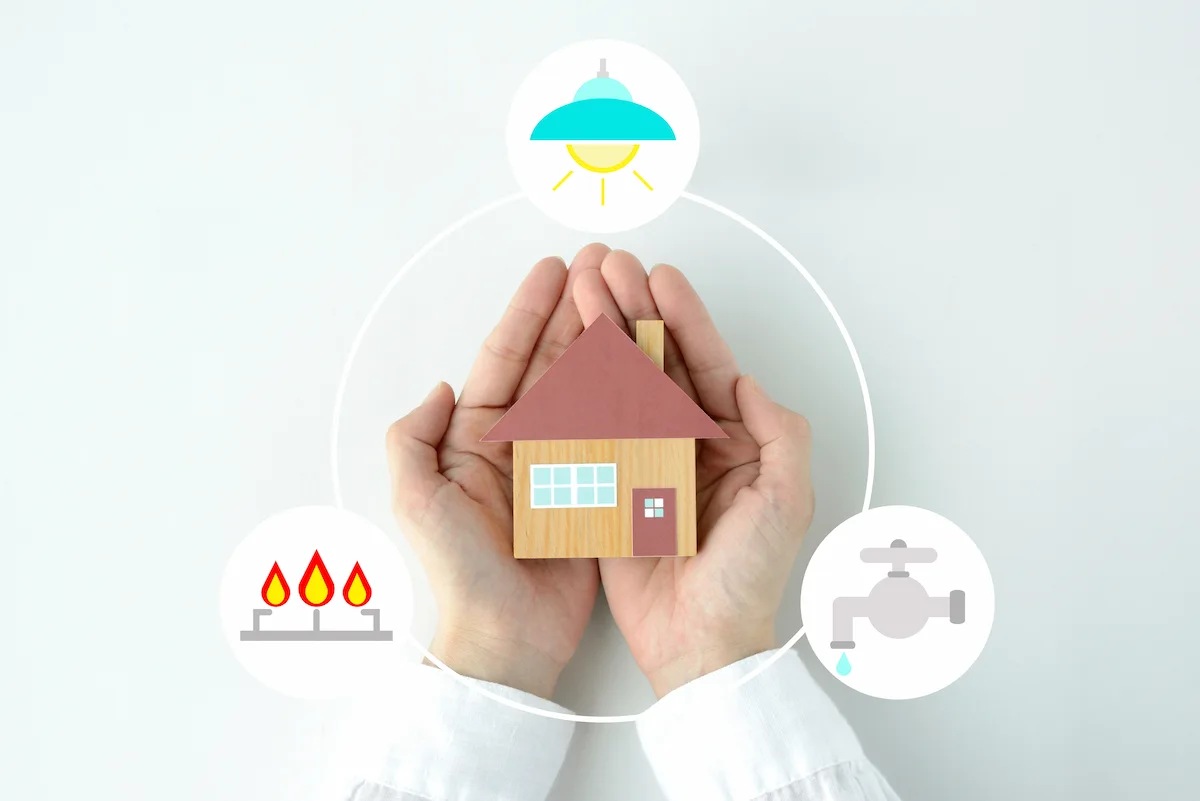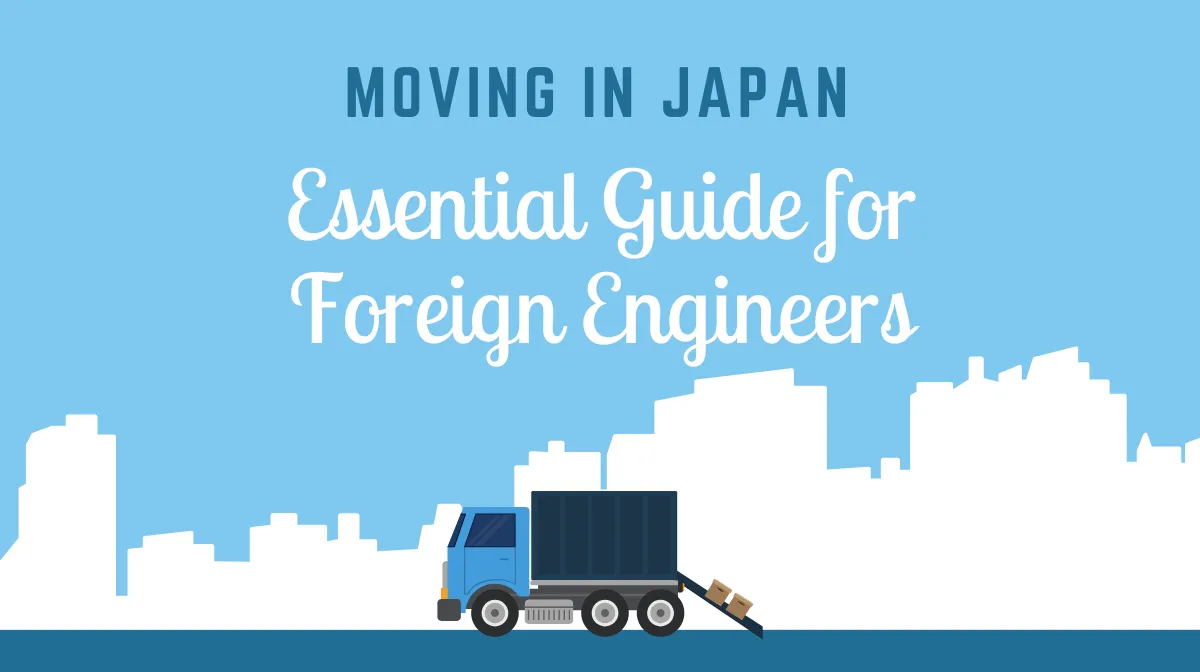For foreign engineers building a career in Japan, moving is an inevitable experience.
Along the way, you’ll encounter seven barriers: language challenges, complex rental systems, unique administrative procedures, and more.
This article introduces practical advice and solutions to help foreign engineers successfully navigate the moving process in Japan.
- The seven barriers foreign engineers face when moving to Japan.
- Essential cultural practices for smooth housing transitions.
- Creating effective workspaces in Japan’s compact environments.
1. The Challenge for Foreign Engineers: Why Moving in Japan Is Difficult

The Main Differences Between Japanese and Foreign Moving Cultures
The Japanese moving culture differs significantly from what many foreigners are accustomed to.
The most notable difference is the complexity of the rental system. While property viewing to move-in is simple in many countries, Japan has unique steps in the process.
In Japan, “using a moving company” is more common than “doing the move yourself”
There are also cost structures not seen in other countries, such as “key money” (reikin) and “renewal fees”
Additionally, there are cultural customs unfamiliar to many foreigners, such as greeting neighbors and giving small gifts when moving in, and strict garbage sorting rules.
Overview of the Seven Barriers Foreign Engineers Face in Japan
When moving in Japan, foreign engineers tend to face seven barriers.
With proper knowledge and preparation, these can certainly be overcome.
Seven barriers commonly faced by foreign engineers
- Language barrier
The Japanese real estate industry has limited English support, making it difficult to understand contracts and important documents. - Housing contract barrier
Many rental properties have “no foreigners” policies, and there are guarantor systems and high initial costs. - Administrative procedure barrier
Complex administrative procedures are required, such as procedures at the municipal office and address changes on residence cards. - Cultural understanding barrier
Building relationships with neighbors and understanding Japan-specific living manners is important. - Infrastructure barrier
Utility contract procedures become complicated due to language barriers, and setting up IT environments is also challenging. - Technology adaptation barrier
Japanese residences are generally small, requiring ingenuity to build efficient home office environments. - Community formation barrier
Building relationships and networks in a new environment becomes difficult due to language and cultural differences.
2. The First Barrier: Language

The biggest initial barrier when moving in Japan is the language barrier.
Japanese is primarily used in the real estate industry, but with appropriate resources and tools, you can effectively navigate the moving process even with limited Japanese ability.
How to Find and Utilize English-Speaking Real Estate Agencies and Moving Companies
In Japan’s major urban areas, real estate and moving companies offering services for foreigners are increasing.
Foreign-oriented real estate portal sites such as GaijinPot Housing Service, TOKYO ROOM FINDER, and REALESTATEJAPAN allow property searches in English.
Human resource departments of foreign companies may have lists of English-speaking real estate companies. You can also get recommendations for reliable real estate companies through social media communities.
Major moving companies (Art Moving Center, Nittsu, Yamato Transport, etc.) provide multilingual support. Get quotes from multiple companies and compare services and prices.
Techniques for Understanding Contracts Using Translation Apps and Machine Translation
Rental contracts and moving company contracts are mostly in Japanese only.
Use apps appropriately to help understand contracts.
- Google Translate, DeepL, and other apps that translate contracts in real-time
- Professional translation services like Gengo
However, since machine translation is not 100% accurate, it’s recommended to have important matters confirmed by someone who understands Japanese.
Community Resources and Online Platforms for Language Support
Various resources are available to overcome the language barrier. Many municipalities have international exchange associations that provide consultation services and interpretation services for foreigners.
Major real estate portals like SUUMO and HOME’S have English-speaking customer support. On platforms like GaijinPot, you can get direct advice from experienced foreigners.
Learning basic Japanese phrases before moving can be very helpful.
Reference: Council of Local Authorities for International Relations: Nationwide Consultation Services
■日本でエンジニアとしてキャリアアップしたい方へ
海外エンジニア転職支援サービス『 Bloomtech Career 』にご相談ください。「英語OK」「ビザサポートあり」「高年収企業」など、外国人エンジニア向けの求人を多数掲載。専任のキャリアアドバイザーが、あなたのスキル・希望に合った最適な日本企業をご紹介します。
▼簡単・無料!30秒で登録完了!まずはお気軽にご連絡ください!
Bloomtech Careerに無料相談してみる
3. The Second Barrier: Housing Contracts

Finding housing in Japan is one of the most challenging issues for foreign engineers.
There are quite a few properties with “no foreigners” policies, and Japan-specific real estate practices such as unique contract systems and high initial costs create barriers.
Property Restrictions Foreigners Face and How to Efficiently Find “Foreigner-Friendly” Properties
In the Japanese rental market, some properties restrict foreigners due to language communication issues and cultural differences.
The main reasons for restrictions include language barriers, concerns about short-term stays, cultural habit differences, and lack of credit history.
Use housing services that allow searching for “foreigner-friendly” properties, real estate companies specializing in foreigners, corporate housing support, and properties in internationally diverse areas.
When choosing a property, also consider commute time, access to living facilities, and internet environment.
Contract Options Using Guarantor-Free or Foreigner-Oriented Guarantee Companies
Japanese rental contracts typically require a joint guarantor, which is a major barrier for foreigners.
In recent years, guarantor alternative options have increased. Foreign-oriented guarantee services are available (typically 0.5-1 month’s rent as a fee).
“Guarantor-free” properties are also increasing, though rent guarantee companies are usually mandatory instead. In some cases, employers may act as guarantors, so consult your HR department.
When choosing a guarantee company, compare English support availability, fee structures, and services.
Checklist of Documents Needed and Preparations for Contracts
Advance preparation of necessary documents is important for smoothly proceeding with rental contracts.
■Necessary documents
- Identification
(residence card, passport) - Income verification
(pay stubs, employment contract) - Certificate of employment
- Bank account information
- Personal seal
(signatures are often acceptable) - Guarantee company-related documents
- Visa information, etc.
■Points to confirm before signing a contract
- Initial costs
(deposit, key money, agent fee, advance rent, fire insurance, etc., typically totaling 4-6 months’ rent) - Property rules
- Negotiation points for contract conditions
(reduction of key money, internet environment setup, etc.) - Cancellation terms
It’s important to check the content with translation tools before signing and to always ask questions about unclear points.
4. The Third Barrier: Administrative Procedures

After completing your move, you’ll face the barrier of administrative procedures.
Foreign residents are required to complete specific procedures different from Japanese nationals. Updating your residence card address is a legal obligation.
Process and Required Documents for Moving Out and Moving In Procedures at Municipal Offices
Administrative procedures at municipal offices are necessary for all residents when moving.
■Moving out notification (Tenshutsu Todoke)
Can be processed at the municipal office of your previous address from two weeks before your planned moving date. You’ll receive a moving-out certificate.
■Moving in notification (Tennyu Todoke)
Must be processed at the municipal office of your new address within 14 days after moving. Required documents: Residence card, passport, moving-out certificate, My Number card (if you have one), personal seal (signature is often acceptable).
Some municipalities offer multilingual support, so checking in advance can provide peace of mind.
Procedures often take 30 minutes to an hour, so visit with plenty of time to spare.
Residence Card Address Change Procedure and Important Notes
Updating the address on your residence card is an important legal obligation specific to foreigners. You must complete this procedure at the municipal office of your new address within 14 days of moving. In most cases, this can be done simultaneously with your moving-in notification.
Required documents are your residence card and passport. Failing to complete this procedure may result in a fine of up to 200,000 yen. The new address will be written on the back of your residence card. (The procedure itself is free)
If you come directly from overseas, your residence card received at the airport will not have an address, so you need to register your address at the municipal office as soon as you decide on your residence.
If you move multiple times and the entry space on the back of your residence card becomes full, additional stickers will be attached.
Address Change Procedures for My Number, Health Insurance, Pension, etc.
Various public systems require address changes when you move.
- My Number related
Address changes for notification cards/My Number cards can be processed when submitting your moving-in notification. Updates are necessary after address changes to use the My Number Portal. - Health insurance related
National Health Insurance can be enrolled in or changed simultaneously with the moving-in notification; for social insurance, contact the relevant department at your workplace. Address changes on insurance cards are not automatic, so be sure to apply. - Pension related
National Pension procedures can be completed simultaneously with the moving-in notification; Employees’ Pension is changed through your workplace.
Additionally, address changes are necessary for bank accounts, credit cards, mobile phone contracts, driver’s licenses, etc.
IT engineers should also remember to update account information and billing addresses for online services.
■日本でエンジニアとしてキャリアアップしたい方へ
海外エンジニア転職支援サービス『 Bloomtech Career 』にご相談ください。「英語OK」「ビザサポートあり」「高年収企業」など、外国人エンジニア向けの求人を多数掲載。専任のキャリアアドバイザーが、あなたのスキル・希望に合った最適な日本企業をご紹介します。
▼簡単・無料!30秒で登録完了!まずはお気軽にご連絡ください!
Bloomtech Careerに無料相談してみる
5. The Fourth Barrier: Cultural Understanding

To start your life smoothly in Japan, understanding cultural aspects is as important as legal procedures.
Understanding Japan’s unique social customs and manners helps you adapt to the local community more smoothly.
Is a Moving Greeting Necessary? Basics of Neighborhood Greetings for Foreigners
In Japan, there’s a unique culture of greeting neighbors when moving into a new residence.
While not obligatory, it’s the first step in building good relationships with neighbors.
Visit both neighboring residences and those across from you (in apartment buildings, also above and below) within a week after moving in for a brief greeting. Weekday evenings or weekend afternoons are generally appropriate.
After knocking on the door or ringing the intercom, introduce yourself, give a simple greeting, and offer a small gift (detergent, towels, or sweets costing about 300-500 yen are common).
Even without fluent Japanese, simple greetings and gestures can make a good impression. Having business cards ready is convenient.
This custom is fading in urban apartment buildings with many young people, so it’s good to check local customs with your real estate company or landlord.
From Garbage Disposal Rules to Noise Etiquette: Living Habits to Prevent Neighborhood Troubles
Japan-specific living rules that foreigners often find confusing and that can cause neighborhood troubles include:
■Japan’s garbage sorting system
Very strict, with collection days designated by type. Put out in the morning (usually by 8 AM) on the specified day, with many municipalities requiring the use of designated garbage bags. Large garbage requires special application and processing fees. Utilize multilingual guides on municipal websites or garbage collection apps.
■Regarding noise
It’s expected to be especially quiet from 10 PM to 8 AM the next morning. Etiquette is needed for playing instruments, loud conversations or music, and using showers or washing machines late at night. Engineers working late due to time zones should consider noise-cancelling equipment and soundproofing measures.
Consideration is also needed for the use of common areas, how to hang laundry on balconies, bicycle/car parking, and pet keeping.
Communal living in Japan is fundamentally based on the concept of “minimizing inconvenience to others.”
6. The Fifth Barrier: Infrastructure

Setting up basic utilities and an IT environment is essential for your new life.
Especially for foreign engineers, stable internet connection is arguably the top priority for continuing work.
How to Contract Electricity, Gas, and Water with English Support and Procedure Flow
Japan’s utilities are high quality, but contract procedures may feel complicated due to language barriers. Consider using services like “Hikkoshi Renraku Cho (only in Japanese)” to consolidate utility procedures.
- Electricity contract
Choose between regional power companies or new power companies. Apply for taking over an existing contract or a new contract via web or phone. Major power companies like TEPCO and Kansai Electric provide English support services. - Gas contract
Choose between city gas or propane gas and apply via web or phone. You need to be present for the gas connection. Tokyo Gas and Osaka Gas offer English support. For local gas companies, use translation apps. - Water
Managed by each municipality, requiring contact with the water bureau. Larger cities often have English-speaking counters.
You’ll need your residence card and rental contract for contracting. Payment is typically by bank transfer or credit card, with almost no initial costs.
Services can be reserved from two weeks before moving, so it’s important to check well in advance, especially for engineers who work from home frequently.
Techniques for Optimizing Japanese Living Environments for Remote Work
Building an efficient remote work environment is important as an engineer.
Japan’s fiber optic internet is world-class (NTT, NURO, au Hikari, So-net, etc.)
Contract periods are typically 2-3 years; consider pocket WiFi for short-term stays.
Apartment-type connections may have lower initial costs as they’re shared within the building. Consider UPS for power outage protection and adapters or transformers for foreign equipment. Be careful of power capacity in older properties.
Since Japanese residences are compact, folding desks or wall-mounted monitors can be effective.
Secure appropriate lighting and background for online meetings, and soundproofing is important.
If your home environment isn’t suitable, consider coworking spaces and build an efficient work schedule leveraging time differences.
7. The Sixth Barrier: Technology Adaptation

For foreign engineers to work efficiently, it’s important to understand Japan-specific IT circumstances and build optimal workspaces in limited living areas.
Efficient Home Office Layout Adapted to Japanese Housing Conditions
Japanese residences, especially urban apartments, have limited space, requiring efficient use.
It’s good to choose a quiet place with natural light for your workspace.
◆Points for a comfortable home office
- Use folding desks, wall-mounted monitor arms, furniture with storage functions, etc., to maximize space.
- Divide areas with partitions and utilize wall storage. Create clear work zones with visual separations (carpets, different lighting) and consider backgrounds for online meetings.
- Japan’s unique tatami rooms (with straw mats) can be used as natural soundproofing material, creating a Japanese-style workstation with low desks and floor chairs.
- In multi-unit housing, use soundproofing curtains, acoustic panels, desk mats, door gap tape, etc., for sound insulation.
- Japanese outlets are often 2-pin without a ground hole, so prepare power strips with surge protectors and international adapters.
Creating a workspace adapted to Japanese housing conditions requires ingenuity, but it’s important to balance functionality and simplicity while clearly defining boundaries between work and life.
8. The Seventh Barrier: Community

One of the major challenges after moving is building relationships in your new environment.
Forming professional networks while integrating into the local community across language and cultural barriers is essential for long-term success and quality of life.
How to Find Communities and Meetups for Foreign Engineers
Japan has various communities and events for foreign engineers.
The tech industry is relatively international with lower language barriers, making it easier to start networking by leveraging your professional skills.
Active groups on Meetup.com include “Tokyo Engineers” and “Japan Dev.” Developer communities can also be found on DEV Japan, LinkedIn Local Events, and Discord.
Regular events for engineers and conferences of various sizes are also held, so checking and actively participating is recommended.
Participation can lead to technical skill improvement, career opportunity discovery, and cultural understanding promotion.
Even if you initially feel a language barrier, many communities also use English and gradually become easier to participate in.
9. First Steps in Your New Life in Japan

Having gone through the moving process in Japan and overcome the seven barriers, you’ve gained not just a residential relocation but valuable experience in cultural adaptation, problem-solving ability, and personal growth.
Best Practices Learned from Successful Moving Experiences of Foreign Engineers
There are common threads in the experiences of successful foreign engineers in Japan.
Accept the adaptation process (experience a gradual adaptation cycle during the first 3-6 months)
Build up small successful experiences (first train commute, shopping in Japanese, etc.)
Develop flexibility and patience for living and working in Japan
Success stories include optimizing limited space with ingenuity, building neighborhood relationships through language exchange, and improving efficiency by digitizing document management.
The key to overcoming moving barriers is a positive attitude, flexible adaptability, and ingenuity. Applying engineering skills to solve everyday challenges enables efficient adaptation.
Tips for Deepening Cultural Understanding and Building Long-Term Careers in Japan
For long-term success in Japan, it’s important to deepen cultural understanding and leverage your strengths while maintaining balance.
Observe Japanese behavioral patterns and values with curiosity, and maintain your cultural identity while embracing Japanese culture.
In career building, provide unique value combining global perspectives with local Japanese knowledge, and serve as a bridge connecting your home country and Japan.
Learn Japan-specific business practices (nemawashi, hourensou, collective decision-making, etc.) and clarify your long-term career path and vision.
If considering long-term residence, understanding permanent residency conditions, asset building using iDeCo and NISA, and planning for family life are also important.
Reference: Immigration Services Agency: Obtaining Permanent Residency
10. Use This Article as Your Moving Guide in Japan!
Moving in Japan is a challenging experience with many barriers, but with proper preparation and knowledge, they can certainly be overcome.
By conquering the seven barriers—language, housing contracts, administrative procedures, cultural understanding, establishing infrastructure, technology adaptation, and community formation—you’ll build a foundation for successful living and career in Japan.
May your new adventure in Japan be fruitful.
Related Reading
The following articles introduce job interview strategies for Japanese companies and how to write resumes and CVs.



















